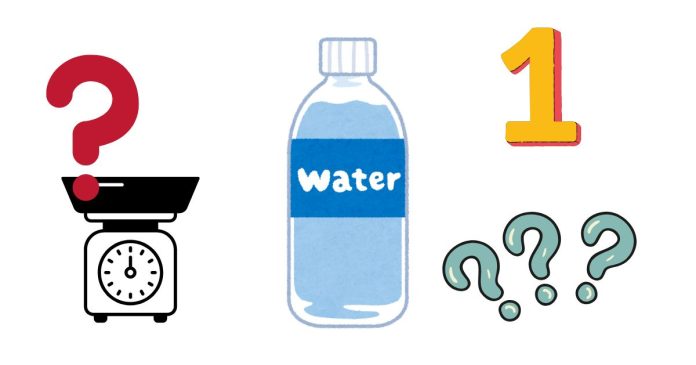How Much Does 1 Liter of Water Weigh in Pounds?
Water is a vital resource, and understanding its weight is important in many everyday situations, from cooking to shipping and scientific experiments. If you’ve ever wondered how much a liter of water weighs, you’re in the right place. In this article, we will break down the weight of 1 liter of water and explain how to convert it from the metric system (liters) to the imperial system (pounds).
The Metric System and Water’s Weight
In the metric system, volume is measured in liters (L), while mass is measured in kilograms (kg). The relationship between volume and mass for water is quite straightforward:
- 1 liter of water = 1 kilogram of water.
This is because water has a density of about 1 gram per cubic centimeter (g/cm³) at standard temperature and pressure, meaning that 1 liter of water (which is equal to 1,000 cubic centimeters) has a mass of 1 kilogram.
Converting Kilograms to Pounds
In the United States and some other countries, we use the imperial system, where weight is typically measured in pounds. To convert the weight of 1 liter of water from kilograms to pounds, we use the following conversion:
- 1 kilogram ≈ 2.20462 pounds.
So, to convert the mass of 1 liter of water (which is 1 kilogram) into pounds:
1 kilogram×2.20462=2.20462 pounds.1 \text{ kilogram} \times 2.20462 = 2.20462 \text{ pounds}.
For simplicity, we can round this to about 2.2 pounds.
Summary: How Much Does 1 Liter of Water Weigh in Pounds?
- 1 liter of water weighs approximately 2.2 pounds.
This conversion is quite useful when you’re calculating how much a certain volume of water will weigh, such as when you’re filling a container, shipping bottled water, or even calculating your hydration needs during exercise.
Why Does Water Have This Weight?
Water’s density is unique in that it remains relatively constant under normal conditions. One liter of water weighs about the same everywhere on Earth, as long as the temperature and pressure remain constant. However, the density of water can change with temperature:
- Warmer water is less dense (so a liter would weigh slightly less).
- Colder water is more dense (so a liter would weigh slightly more).
Nonetheless, the difference in weight due to temperature is small and often negligible for everyday purposes.
Practical Uses of Knowing the Weight of Water
Understanding how much 1 liter of water weighs in pounds is helpful in many scenarios:
- Cooking: Many recipes use liters or milliliters as measurements, and knowing the equivalent weight in pounds can help you balance ingredients more accurately.
- Hydration: If you’re tracking your daily water intake, knowing that 1 liter of water weighs 2.2 pounds helps you track how much you’re drinking.
- Shipping and Transport: If you’re shipping water, understanding the weight of the liquid helps in calculating shipping costs and logistics.
- Science and Education: Whether in the classroom or the laboratory, the weight of water is often used in experiments to teach principles of physics and chemistry.
Conclusion
In conclusion, 1 liter of water weighs about 2.2 pounds. This conversion between liters and pounds is a simple yet essential piece of information that comes in handy in a variety of practical situations, from cooking and hydration to shipping and scientific experiments. Whether you’re working with small amounts of water or large quantities, this knowledge helps ensure accuracy and efficiency in both everyday life and professional applications.


